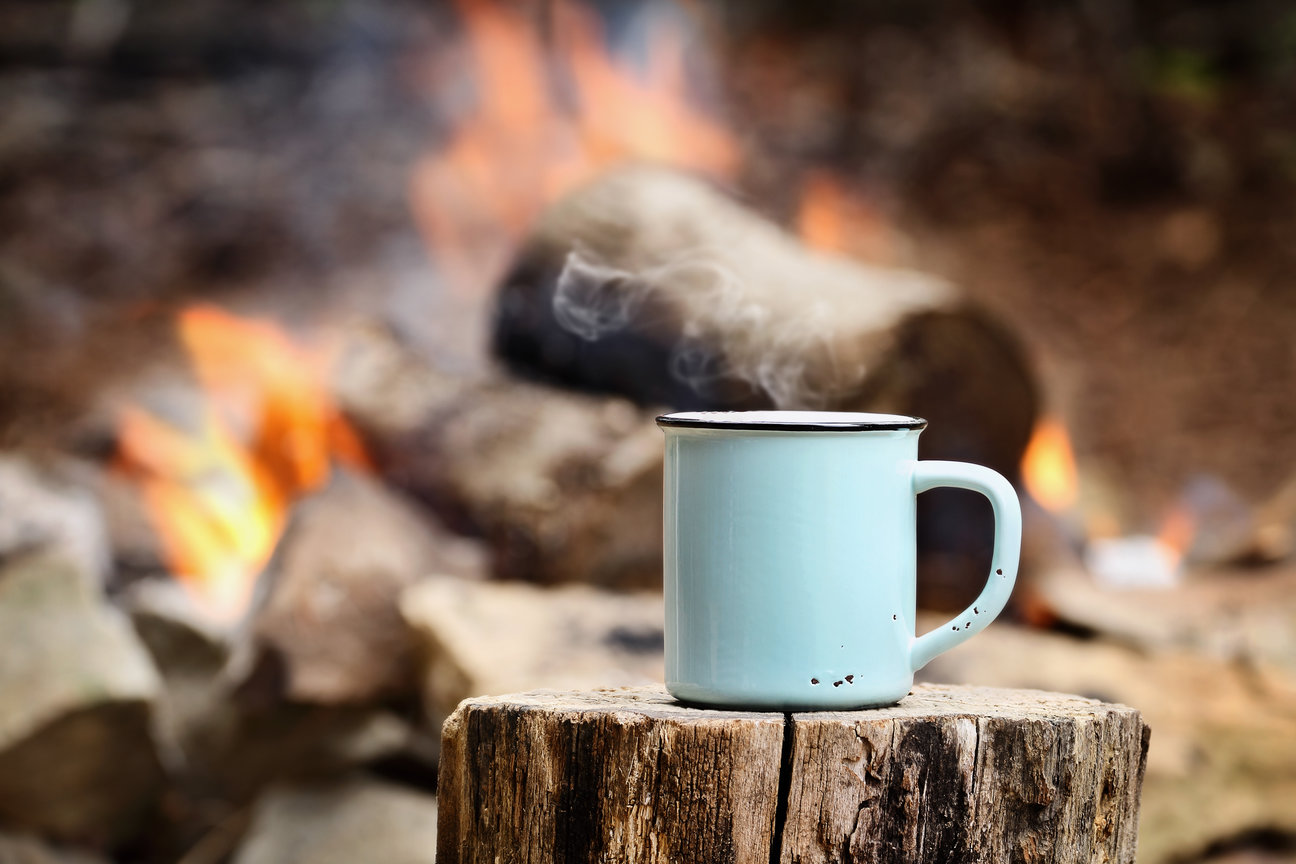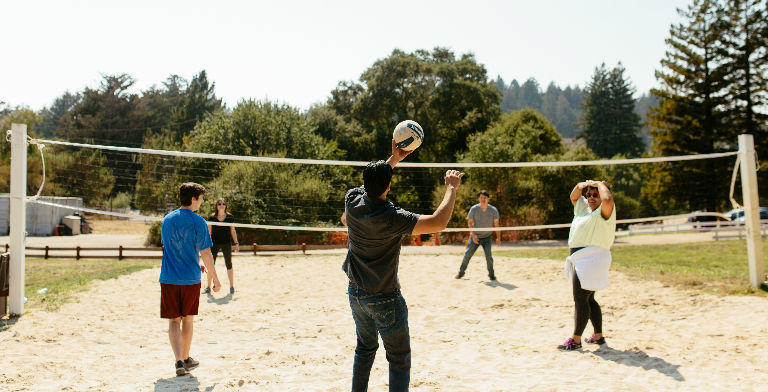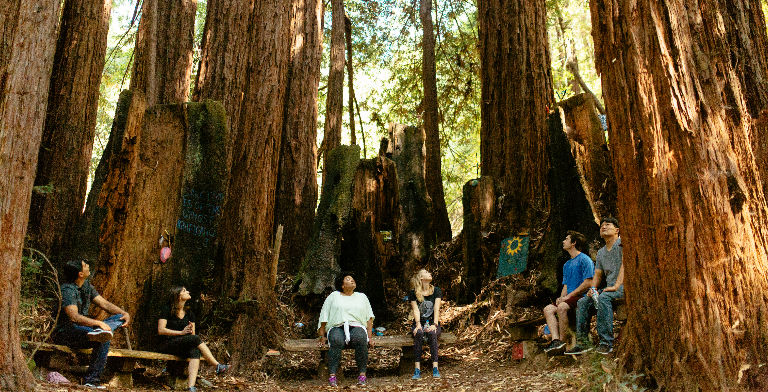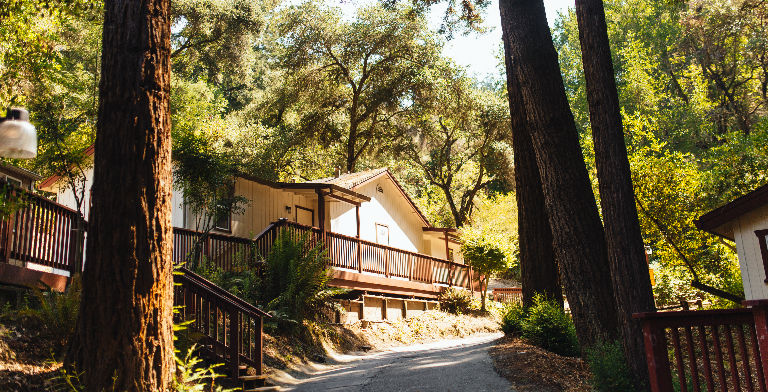The Camp Recovery Center helps adolescents & adults struggling with co-occurring disorders find long-term recovery. Located near Scotts Valley & San Jose, CA, The Camp provides premier substance abuse rehabilitation & co-occurring disorder treatment.
Co-occurring Disorder Treatment
Co-occurring Disorder Treatment Near Santa Cruz & San Jose
It is quite common for an individual who is caught in the grips of an addiction to simultaneously struggle with a mental illness. When a person is battling a substance abuse problem or chemical dependency and a mental health disorder at the same time, this is known as a co-occurring disorder. In many co-occurring disorder cases, the abuse of substances often occurs as a means of self-medicating the distressing symptoms of the untreated disorders the person is are suffering from. When this type of unhealthy coping occurs, the symptoms of the untreated illness will likely become worse and perpetuate the vicious cycle of addiction.
Mental health conditions that frequently exist alongside substance use disorders include depression, anxiety, posttraumatic stress disorder, and bipolar disorder. When these illnesses do not receive the proper care required to manage their symptoms, sufferers often resort to using drugs and/or alcohol, as these substances can be easily acquired and offer the false sense of relief that these individuals strive for. Additionally, those who have a genetic predisposition to certain mental illnesses can begin to suffer from such disorders when substances are abused because of the way that drugs and alcohol interact with neurological chemicals and brain functioning.
Regardless of which manifested first, the presence of a substance use disorder in conjunction with a mental health disorder can cause a great deal of turmoil and devastation in a person’s life. For this reason, it is necessary to consider a treatment provider that is equipped to identify the presence of a mental health condition when a substance use disorder is present, effectively treat co-occurring disorders, and provide the skills needed to manage mental illness symptoms and sustain recovery from addiction. At The Camp, we offer a specialty treatment track that is designed to help people who are struggling with addiction and co-occurring mental health concerns.
Statistics
Statistics for Co-occurring Disorders
Recent research states that over 17 million people in the United States meet diagnostic criteria for a mental illness or illnesses. Of that number, it is estimated that 25% of those individuals are also struggling with a co-occurring disorder concerns. Among those grappling with dual diagnosis, only half are believed to receive treatment. Additionally, it also believed that those who do receive treatment for dual diagnoses only receive care that addresses one of the disorders that they are suffering from, rather than comprehensive treatment that treats both substance use and mental health disorders.
Signs and Symptoms
Signs and Symptoms of a Co-occurring Disorder
Because struggling with a co-occurring disorder encompasses signs and symptoms of a substance use disorder(s) and a mental health condition(s), being able to identify and distinguish both can be somewhat difficult. Depending on the substance that is being abused, as well as the mental illness or illnesses that are present, it is important to consult with professionals who are adept at recognizing the presence of both types of conditions.
If you feel that you or a loved one may be suffering from a co-occurring disorder, it will be helpful to note the presence of the following signs and symptoms and then speak to a mental health or addictions professional to determine the most appropriate type and level of care for treatment:
Behavioral symptoms:
- Possessing drug paraphernalia
- Demonstrating overtly aggressive behaviors, which may be out of character for the individual
- No longer participating in activities that were once enjoyed
- Missing school or work
- Engaging in risky or self-harming behaviors
- Lying or omitting details about one’s activities or whereabouts
- Demonstrating erratic or impulsive behaviors
- Self-harm
Physical symptoms:
- Decline in hygiene
- Hypersomnia or insomnia
- Malnutrition
- Appetite changes leading to weight loss or gain
- Increase or decrease in energy levels
- Vital organ damage
- Injection sites due to drug use
- Smelling of alcohol or another drug
Cognitive symptoms:
- Confusion
- Suicidal ideation
- Poor concentration
- Loss of consciousness
- Delusions
- Paranoia
- Depersonalization
- Derealization
- Hallucinations
Psychosocial symptoms:
- Abrupt changes in mood
- Agitation
- Increased anxiety
- Feelings of invincibility
- Irritability
- Depressed feelings
- Unwarranted hostility
Effects
Effects of Co-occurring Disorders
Failing to seek treatment for a co-occurring disorder can ultimately lead to a wide range of negative outcomes for sufferers. Additionally, it is possible for a person to experience adversity if treatment is received, yet does not effectively care for both the presenting mental health and substance abuse problems. Below are examples of what can happen when an individual does not receive proper treatment for co-occurring disorders:
- Declined academic performance
- Academic failure
- Expulsion from school
- Declined occupational performance
- Job loss
- Chronic unemployment
- Financial difficulties or ruin
- Homelessness
- Increased conflict with friends and/or family members
- Demise of meaningful relationships
- Divorce
- Increase in interaction with the legal system, which could lead to incarceration
- Worsening of current mental health symptoms
- Development of additional mental health concerns
- Development of an addiction
- Polysubstance use and abuse, which can also lead to addiction
- Overall decline in mental and physical health
- Overdose
- Self-harm
- Suicidal ideation
- Suicide attempts, which could lead to death
Why Consider Us?
Why Consider Co-Occurring Disorder Treatment at The Camp Recovery Center, Located Near San Jose & Santa Cruz, CA
Suffering from a substance use disorder without the presence of a mental illness can cause havoc within an individual’s life. However, when a mental health condition, such as depression, bipolar disorder, an anxiety disorder, a trauma-related disorder, or a combination of these conditions, is present at the same time as a chronic substance abuse problem, the resulting effects can be even more detrimental. Untreated co-occurring disorders can keep a person trapped in the insidious cycle of substance abuse without any kind of relief from the distressing symptoms of the mental illness. Thankfully, there are excellent treatment options that can greatly improve the lives of those who want to recover from an addiction and healthily manage mental illness symptoms.
Residential treatment is one of the most effective forms of treatment, having helped countless adolescents and adults defeat their addictions and successfully manage mental health disorder symptoms. Within this type of treatment, individuals are able to receive all-inclusive care that is facilitated by caring and dedicated professionals who are available 24 hours a day, seven days a week. As part of the residential treatment offered here at The Camp Recovery Center, individuals can receive care in our specialty co-occurring disorder treatment track. Addiction specialists and mental health experts lead individual, family, group, and experiential therapy sessions so that each and every treatment need can be met to the fullest extent. Psychiatrists and nurses are also on hand to provide invaluable support in the event that a person needs medication to help fully alleviate their symptoms. By receiving residential treatment, those who are working to recover from an addiction to substances can lay the foundation for a bright and sober future with an improved ability to manage the turmoil and stress caused by having a mental illness.
















